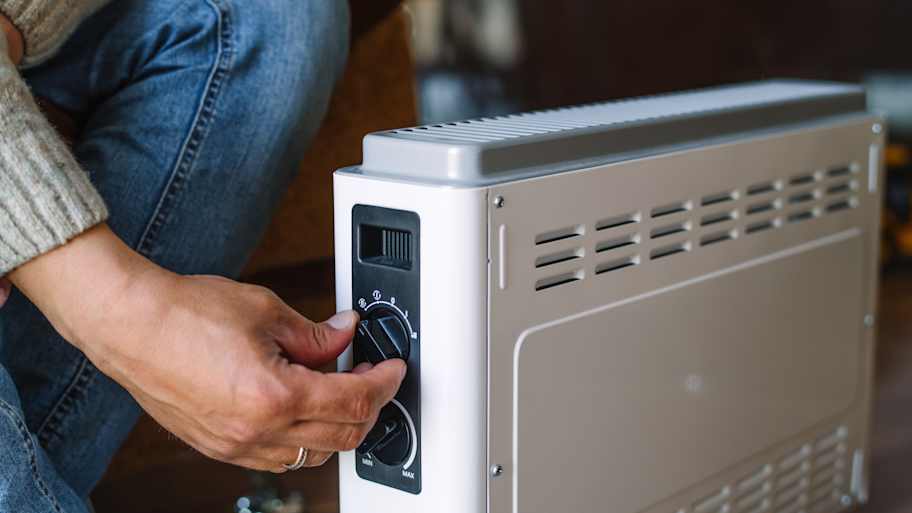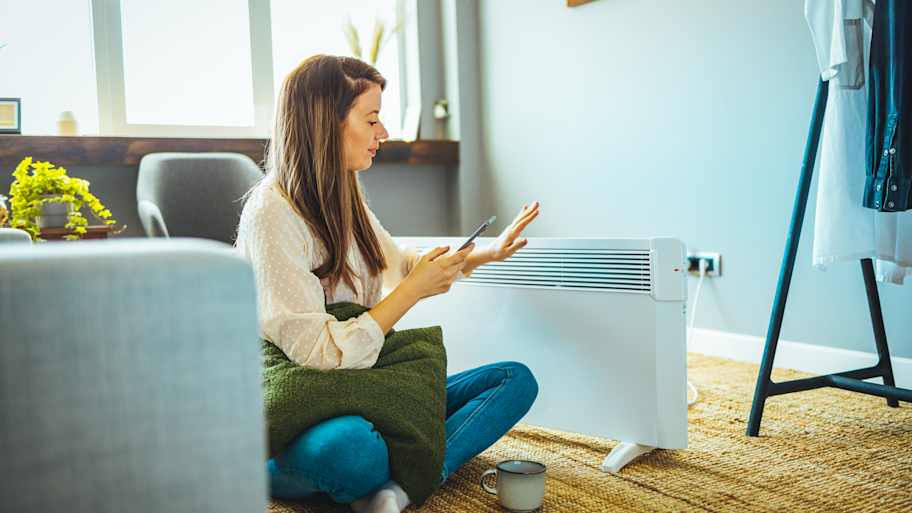
Feeling safe at home should always be a priority, and installing a new security system can help you do just that—no matter where you live.
Stay toasty, not toasted


There’s nothing like a space heater to chase away the winter chill. However, before you plug one in, it’s worth brushing up on space heater safety tips. While newer models have more protective features, they still pack a big punch—both in terms of heat and hazard. Let’s walk through the cozy dos and dangerous don’ts to keep your home warm and worry-free.
You may have purchased an inexpensive space heater from an unknown brand online. In this instance, you should verify that a recognized testing laboratory has rated your appliance.
Check for safety certifications, such as those from Underwriters Laboratories (UL), CSA International, or the Electrical Testing Laboratories (ETL). These marks mean the heater meets national safety standards.
Your space heater isn't a shelf, so never place anything on or near it, especially anything flammable. A good rule of thumb is to provide at least 3 feet of clearance. That means no slippers, laundry, or anything else close by.
Also, never set it on a table, stool, or chair; always put it on a flat, hard surface, such as a wood or tiled floor. Remember, while many newer models won't turn on if placed on soft or uneven ground, older models might. And when they tip while running, they can easily become a fire hazard.
Yes, space heaters use electricity, and while power strips and extension cords are undoubtedly convenient, they can pose a fire hazard when used with these appliances.
Space heaters draw significant power and can easily overheat cords, so we always advise you plug your space heater into a wall outlet. Additionally, ensure that the outlet is not overloaded with other devices.

It might be tempting to drift off to sleep with your space heater humming. However, even if your heater has auto-shutoff features, it's not worth the risk of it overheating and starting a fire. If you need help staying warm during the night, opt for extra blankets, flannel pajamas, and socks.
A running heater without supervision is a fire risk, especially if you’ve got curious kids or pets at home. Furry friends love to cozy up to the warmth, but they can easily knock it over, chew on the cord, or get burned.
So, unplug your space heater if you are heading out to check the mail or going downstairs to fetch the laundry. It only takes a second and is one of the simplest ways to prevent accidents.
Consult the manufacturer's instructions to determine the optimal running time, but know that heaters should not run continuously throughout the day. Unplug yours every few hours, even if it has an auto-shutoff feature, to give it a breather.

Before you turn it on, take a minute to inspect your space heater. First, examine the area around vents for dust buildup and remove it with a dust cloth. If you discover frayed cords and loose plugs, or perhaps funky smells when it kicks on, it's time to repair or replace your space heater.
It might sound nice to preheat your chilly bathroom, but most space heaters are not designed for moist, humid environments. Remember, water and electricity are not friends. Unless your unit is specifically labeled as bathroom-safe, keep it out of damp spaces where steam or splashes could cause trouble.
If you use appliances like space heaters, one of the best fire prevention tips is to install a home security system with smoke and heat detection. It will alert you and emergency services at the first sign of trouble, even if you're not home. Homeowners can work with a local home security system professional to find a setup that fits their needs and keeps their home safe and sound, all year long.
From average costs to expert advice, get all the answers you need to get your job done.

Feeling safe at home should always be a priority, and installing a new security system can help you do just that—no matter where you live.

From warding off intruders to protecting from falls, bars on windows can make a home much more secure. Here’s how much it costs to install bars on windows.

Motion-sensor lighting costs vary greatly because they have so many customizations available. Learn more by using this cost guide about motion-sensor lights.

Looking to truly amp up your home’s overall security level? Keep reading to learn how to install a security system all by yourself.

There are plenty of benefits of installing security cameras. Check out these pros of setting up a security camera system around your home.

Not sure who to hire to install or repair security bars? Explore top pro options, learn how installations work, and plan your next steps.